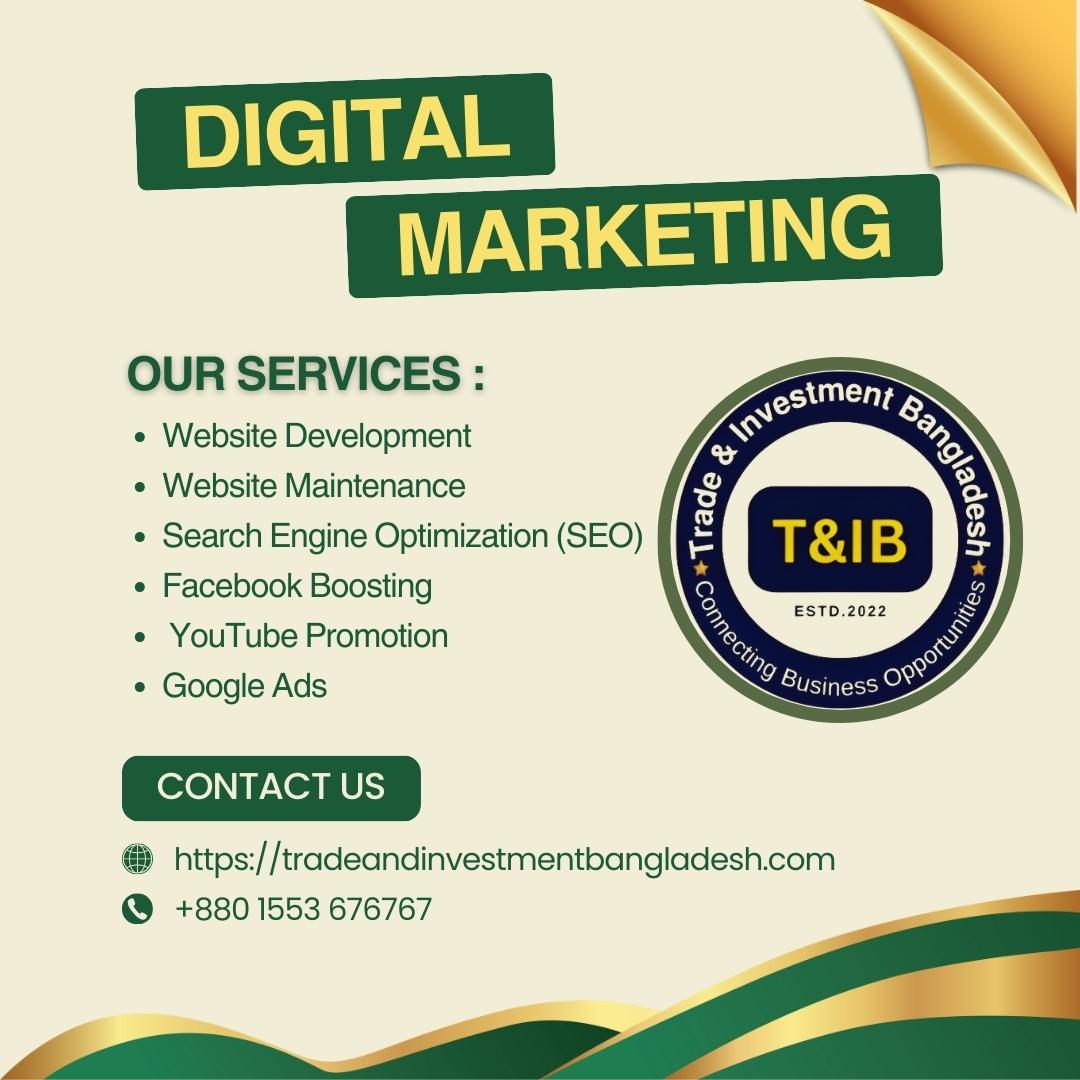Complete Digital Marketing Package
Complete Digital Marketing Package Md. Joynal Abdin Founder & CEO, Trade & Investment Bangladesh (T&IB) Executive Director, Online Training Academy (OTA) Secretary General, Brazil Bangladesh Chamber of Commerce & Industry (BBCCI) In today’s fast-paced digital world, having a strong…
Read More





![Digital Marketing Infrastructure [P-2]](https://bangladeshtradecenter.com/wp-content/uploads/2023/05/Social-Media.jpg)

 by
by